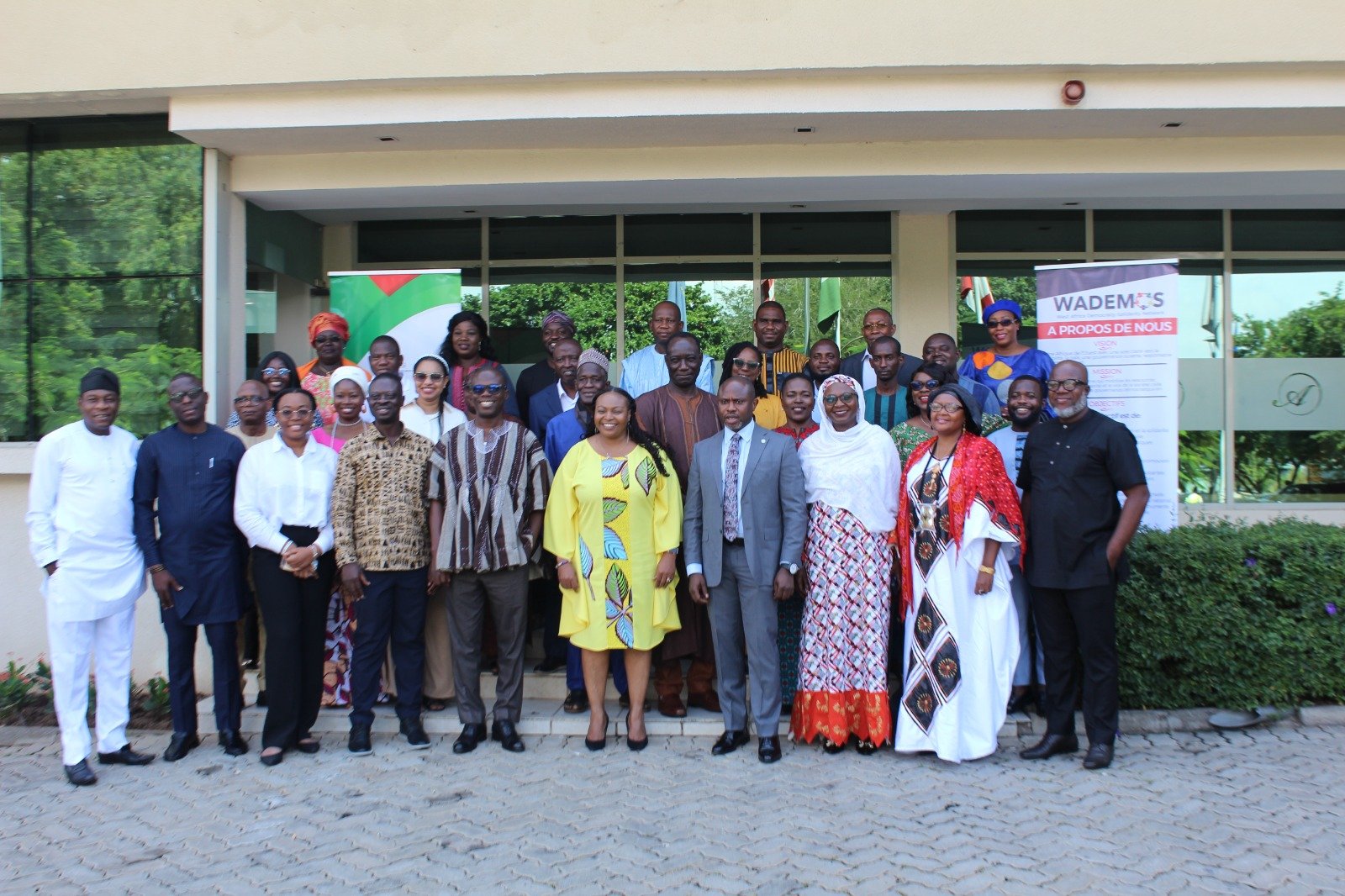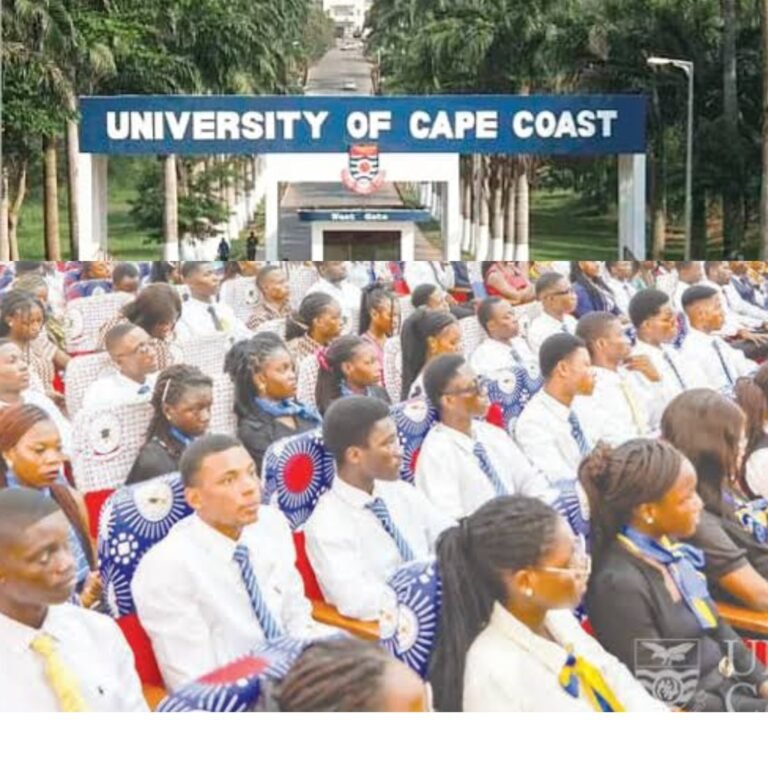
Some leaders of WACSI, MfWA, WANEP, WADEMOS in a group photograph

Amidst the unprecedented challenges facing democracy in the West African sub-region, a critical assembly of civil society leaders, activists and development partners came together in Accra yesterday at the Alisa Hotel to forge innovative strategies aimed at collectively addressing the pressing concerns regarding the survival of democracy in the region.
The two-day regional democracy strategy dialogue was organised by the West Africa Civil Society Institute (WACSI), in collaboration with the Media Foundation for West Africa (MfWA), West Africa Network for Peacebuilding (WANEP) and West Africa Democracy Solidarity Network (WADEMOS). It is under theme “Strengthening Democracy and State-Citizens Relations in West Africa”.
 Addressing the media on the rationale behind the dialogue, the Director General of WACSI, Nana Asantewa Afadzinu, said the dialogue would build a collective movement that transcends existing divisions, and addresses the inherent vulnerabilities in the democratic systems of the region.
Addressing the media on the rationale behind the dialogue, the Director General of WACSI, Nana Asantewa Afadzinu, said the dialogue would build a collective movement that transcends existing divisions, and addresses the inherent vulnerabilities in the democratic systems of the region.
She noted that it would rigorously examine the pivotal role of civil society in upholding democratic values, consolidating regional development, and navigating the multifaceted contemporary landscape. She expressed concern about the region’s democratic backsliding.
Decline
Nana Afadzinu lamented the observed decline in the region’s democratic progress, comparing it to the relative growth seen in the early 2000s. She recalled a time when West Africa was making strides towards constitutionalism, constitutionally elected governments, and the strengthening of institutions, encompassing the Executive, Legislature, Judiciary and Electoral systems.
However, she pointed out that the present situation is regressing due to the actions of certain leaders who seek to prolong their stay in power and manipulate the political landscape, often leading to citizen protests and infringements on their rights.
“That’s why this crucial convening has brought together ten prominent regional civil society organizations with strong ties to the Economic Community of West African States (ECOWAS)… It also involves ten leading activists and CSO leaders from countries in transition, such as Burkina Faso, Guinea, Mali, and Niger. The discussions during this gathering will help develop a robust communication strategy that amplifies civil society voices and fosters collaboration with regional bodies like ECOWAS and state governments,” she noted.
 Multifaceted
Multifaceted
For his part, the Executive Director of MfWA, Sulemana Braimah, stated that the threats to democracy in West Africa are multifaceted, encompassing issues such as political instability, electoral malpractices, and diminishing civic participation. These problems, he noted, had been exacerbated by external pressures, economic challenges, and security concerns in the region.
He, therefore, highlighted the need for concerted efforts to address these challenges, emphasising the importance of strengthening democratic institutions, ensuring transparent electoral processes, and engaging communities in the decision-making processes.
He also urged CSOs to build stronger collaboration and resilience that would promote inclusivity and diversity in the political landscape, ensuring that all voices are heard and represented in the decision-making process.
Mr Braimah believes that the dialogue would enable them explore available options to embark upon to contribute more strongly towards democratic consolidation, rebuilding, and reconstruction.
“When democracy is decaying, it is not just about the Executive, it is about all the institutions of democracy; it is about the Police, military, media, Judiciary, among others. When democracy is deteriorating, you’ll see the effects manifesting around all these institutions,” he said.
 Concerns
Concerns
Prof Charles Ukeje, who spoke on behalf of the Executive Director of the WANEP, Chukwuemeka Eze, highlighted growing concerns about the current state of democracy in West Africa. Ukeje raised pertinent issues related to the democratic dispensation in the region, noting that “we are witnessing deficits in democracy”.
Ukeje elaborated on the nature of these deficits, emphasizing that they pertain to fundamental aspects of people’s lives. He pointed out that the people of West Africa are increasingly questioning whether democracy is truly delivering on its promises, such as providing food for the populace and ensuring access to education and healthcare.
“It’s not just about the existence of democratic institutions; it’s about whether democracy is putting food on the table for people, giving them the opportunity to send their children to school, and ensuring that pregnant mothers can safely deliver in hospitals,” Ukeje stated.
 He stressed that when these basic necessities and rights are not readily available to the citizens, it raises profound doubts about the essence of democracy in the region.
He stressed that when these basic necessities and rights are not readily available to the citizens, it raises profound doubts about the essence of democracy in the region.
The acting Project Director of the WADEMOS, Paul Osei Kufuor, also stressed the need for good governance in West Africa. He indicated that the CSOs engagement would go a long way to restore constitutional order in Niger.
He added that the strategies to be churned out would amplify civic voices, and result in a refined grasp of geopolitical influences. These, he stressed, will also foster a more robust and unified civil society, and enhanced mechanisms and strategies for strengthening democracy.





